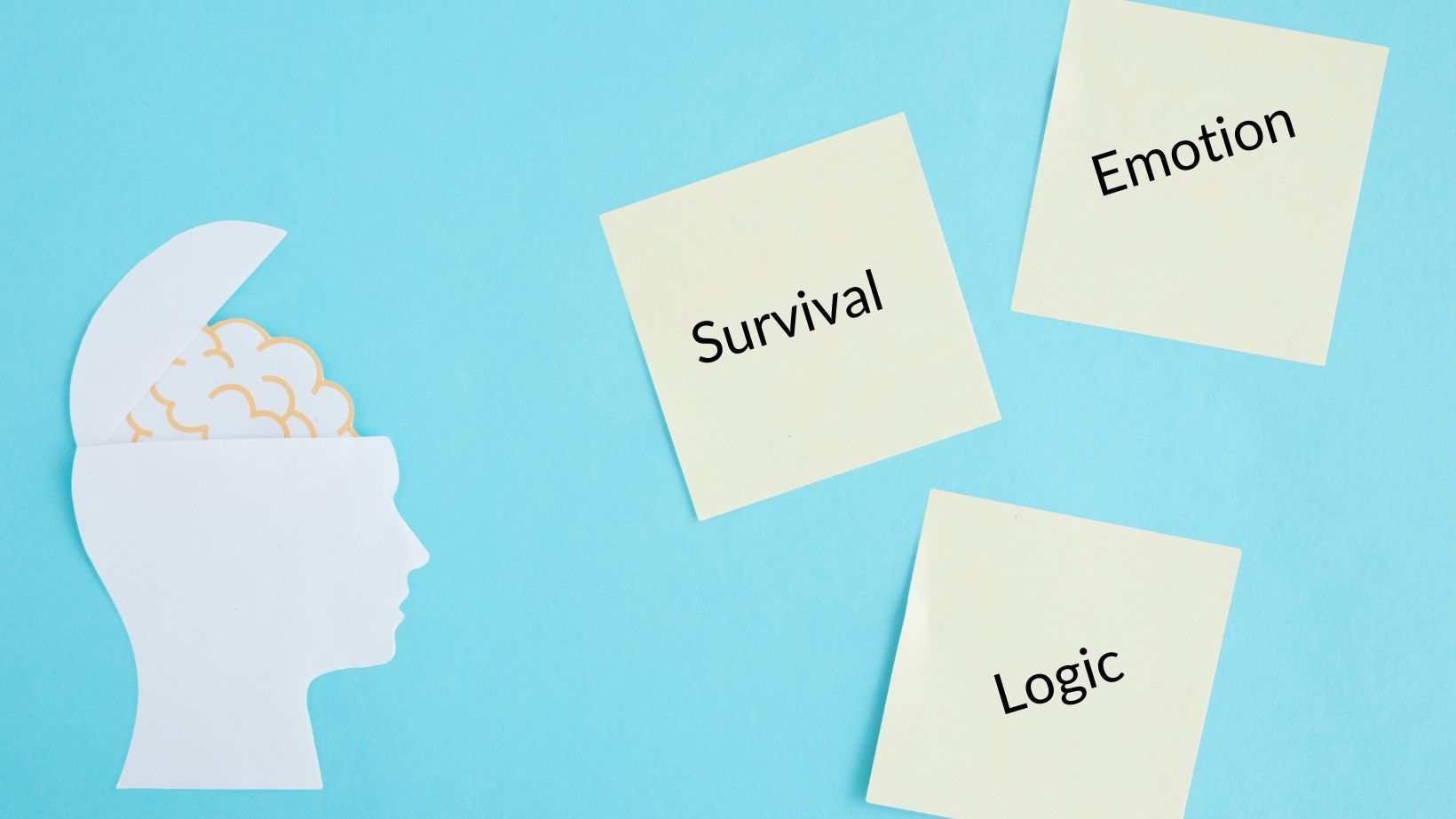Blame Your Brain!
May 30, 2023
Got Anxiety? Blame Your Brain!
Have you ever been hit with anxiety out of nowhere?
One moment you’re fine, and the next you’re worried about something that hasn’t even happened yet.
Suddenly, you’re imagining the worst-case scenario and completely consumed with fear and worry. For some people, the anxiety is so severe they have issues leaving the house or functioning in social situations.
Extreme anxiety interferes with your quality of life and happiness, and can result in a loss of money, time, energy, and close relationships.
In working with clients over the last decade to unravel anxiety, it became clear that many people aren’t aware of what triggered their anxiety in the first place.
In other words, if you’re not completely aware of the problem, then how are you expected to solve it?
Plus, if you’re an empath or highly sensitive person, you may be absorbing the problems of others unconsciously and reacting as if the problem was your own!
If you’re suffering from anxiety, then it’s time to put the blame where it belongs.
Spoiler alert: it’s not you, it’s your brain!
Obviously, we only have one brain, but it’s responsible for so many different functions that it’s helpful to split it into 3 parts to understand how it may be sabotaging you and causing anxiety.
This is called the Three Brain Theory. It’s helpful to think about the brain as having 3 different levels each with a different personality and motivations.
The first level of your brain is called the survival or unconscious brain.
It’s considered your default level and will hijack the other levels of your brain and take over if it feels you’re being threatened in some way.
Unfortunately, this brain will react the same way to an actual threat as it will to an imagined one.
You might be unfamiliar with this level, but it’s the most important when it comes to understanding your anxiety.
This level controls your fight, flight, or freeze response plus a desire to maintain your safety and security at all costs.
Since this brain is constantly looking for threats, it can make you feel like you live in an unsafe world which will generate intense anxiety.
Also, anything that threatens your financial security, love life, or family situation will hit the panic button in this brain and generate a response.
This can manifest as anxiety, procrastination, fear, and negative thoughts about your safety and future.
For example, have you ever had a fear about losing your job?
If so, then the chain reaction in your survival brain goes something like this: “If I lose my job, I can’t pay my bills, and I’ll be homeless and starving. Then, I’ll die alone because no one will help me”.
Does this sound familiar?
If so, it’s because the survival brain is always calculating the worst-case scenario which generally leads to your death.
Fortunately, for most people, this isn’t true.
Even if you did lose your job, you may be able to find another one quickly. If not, then there are often outreach programs, churches, or friends that can help you get back on your feet before your situation becomes dire and your fears become reality.
However, the survival brain is so strong, that it’ll make you feel as if disaster is the only outcome.
The next level of the brain is the emotional brain or subconscious.
This level is probably familiar to you and is often the focus of different mind/body or self-help techniques.
The emotional brain governs everything you think to be true about yourself, your circumstances, spiritual beliefs, individual identity, creativity, and your desire to be loved and accepted.
If you’re afraid of doing something because you’ll be judged or branded an outcast, then this is the level where the anxiety is originating.
Your subconscious is highly programmable.
As a result, it’ll believe anything you tell it.
This is beneficial if you’re doing mind/body or affirmation work but can be disastrous if you’re stuck in a never-ending loop of low self-esteem, negative self-talk, and anxiety.
Your desire to fit in can lead to unhappiness if you’re too afraid of rejection to make decisions based on your authentic wants and needs.
For highly sensitive people, this level is the trickiest because your subconscious also has no concept of time and can’t differentiate between what’s happening to you vs other people.
It’s highly programmable, remember?
In fact, this brain makes up stories that go along with its beliefs even if these stories aren’t grounded in actual facts or reality.
This tendency is called emotional reality and holding onto these stories can cause low self-esteem, negative thoughts, and limiting beliefs.
Because of this, you might be taking on the problems of other people subconsciously in a misguided effort to make them feel better.
Since your subconscious has no concept of time, a trauma that happened in childhood can still be affecting you today if you encounter a similar set of circumstances or triggers as the original traumatic event.
For example, you might have anxiety while driving in the present because of a car accident that you saw or were involved in years prior.
This level of the brain doesn’t know the trauma was in the past and can’t cause harm in the present.
In addition, the subconscious will send information to the survival brain to determine whether something is a threat and what your response should be.
So, when you experience anxiety in this example, it’s because the survival brain has decided that the most likely outcome if you were to drive would be death.
It’s no wonder you’d have anxiety every time you got behind the wheel of your car if your brain thought you were going to die!
The final level is the logical or conscious brain.
This level is the one you think of when it comes to the brain and probably consider it the most important.
However, it’s the least important when it comes to anxiety!
The logical brain governs math, language, reasoning, strategy, and planning.
What’s important to note is that this brain doesn’t have any emotion attached to it, just pure logic, and the facts.
In comparison, the emotional brain is only emotion, and no logic.
So, these two levels of the brain need to work together to keep you balanced and grounded in reality.
Under the Three Brain Theory, the different brains often have opposing goals and beliefs.
This leads to inner conflicts that often present as anxiety and low self-esteem or limiting beliefs.
To help realign the brains and get them on the same page, I use The Bespoke Brain System.
This technique helps determine hidden triggers causing anxiety, the underlying fear contributing to anxiety, and what level of the brain is the source of the imbalance.
When you realign the brains, you bring peace, understanding, and balance which helps you let go of old traumas and negative beliefs. In this way, you’re able to lead a calm and confident life.
If you’d like to learn more about how The Bespoke Brain System can help you let go of anxiety, then book an appointment or consultation HERE.

Dr. April Darley is a Resilience Coach specializing in helping people release stress, anxiety, pain, and sabotaging behavior. Through The Bespoke Brain System, you'll learn how to balance your nervous system to comfortably deal with life's challenges.
Freedom In Your Inbox!
Join our mailing list to receive weekly tips on how to balance leadership and life.
Don't worry, your information won't be shared and you can unsubscribe at any time.
